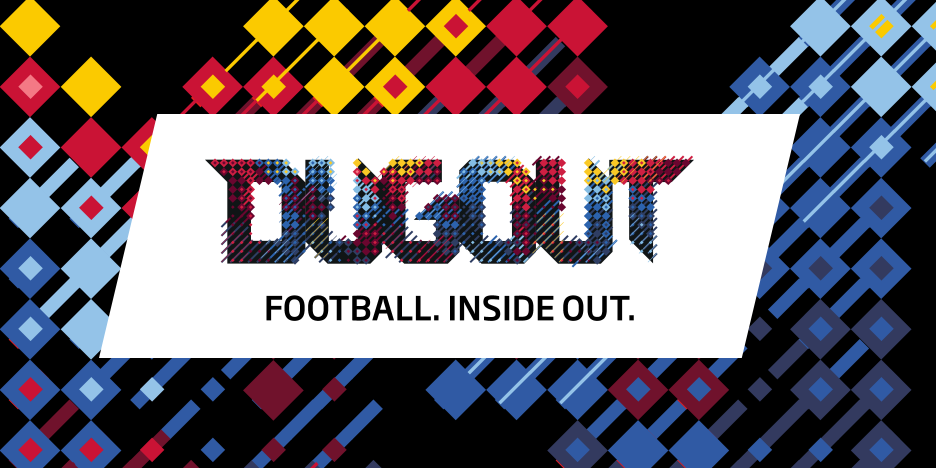Save 50% on a 3-month Digiday+ membership. Ends Dec 5.
Inside football startup Dugout’s plan to help clubs turn content into cash

Six months ago, some of the world’s biggest football clubs –Arsenal, Chelsea and FC Barcelona — joined together to form the Dugout, betting they could collectively form their own media entity.
So far the signs are good, according to Dugout, which hit 10 million monthly unique users in May, with six in 10 of those coming from the U.K., Europe and the U.S. Over a third (35 percent) of Dugout’s monthly visits are from returning users. It’s a fast start that has piqued the interest of football chiefs keen to tap into the deluge of brand budgets going into digital media.
That interest from football clubs pushed Dugout from hosting content created by 20 founding clubs when it started to 54 in less than a half a year. By the end of 2017, that figure is expected to top around 150 teams, according to co-founder and president Elliot Richardson, who is in discussions with another 40 clubs and wants to sign between 20 and 30 national federations to get close to that target. Similar deals with publishers, like the one it has with Sky, are also planned, as are those with individual players, with both groups encouraged to direct followers to their own profiles on the site.
The first of these new deals is with the European champion Portugal. Like the 54 club teams before it, Portugal’s national federation has agreed to post off-pitch and lifestyle content on Dugout’s site 24 hours before it can then repost to other social networks. It does this for a share of the 50 percent of Dugout’s ad revenues that is split between the teams, while the other half goes back to the company.
The free-to-use service’s lifeblood is ads, but the management team at Dugout wants to keep it as “display-free” as possible, said Richardson, in favor of securing more lucrative (and hopefully) engaging branded-content deals. Content from these deals is pitched as Dugout’s version of Netflix originals due to its high production value and how the involvement of multiple football teams putting them together makes them unique to the site. Three sponsors have tested the idea with multiple teams, while the publisher revealed others are imminent, following discussions with several upstart brands looking for a cheaper way to reach targeted audiences.
Whether ad revenue is enough incentive to convince clubs of Dugout’s role in their online strategies remains to be seen. After all, football clubs increasingly pitch themselves as media companies and could see it as the warmup to running their own digital strategies. A robust digital strategy that straddles multiple touch points isn’t cheap to run and could test the enthusiasm clubs and players have for pushing content to yet another platform. Brokering lucrative commercial deals is also bound to be marred somewhat by potential conflicts of interest between potential partners and club sponsors. For example, a betting brand might find it tricky to work with certain clubs on Dugout that are backed by its rivals.
Richardson, however, believes otherwise. “If a club says, ‘I can’t do that [deal] because it upsets one of my key partners,'” he said, “then we can pivot to another because we have such a vast array of clubs that there’s plenty of room to reach the audience.”
Ad position: web_incontent_pos1
He points to Dugout’s burgeoning consultancy division as a way it might evolve its raison d’être to football clubs. Some 12 teams have a so-called “digital media owner,” whom they hire, but Dugout pays to have someone internally working at some of its strongest partnerships. Demand for the service is mainly from the more digitally adept teams than those that need to play catch-up, said Richardson, who revealed Dugout is “in the process of adding more of those people to more clubs.”
Plans are also underway to turn the content-management system powering the site into a “market-leading CMS in the sports space.” Details about this are scarce, though Ian Nolan, chief content officer at Dugout, said he wants to “gamify” the platform so it’s “not such a hardship” to update profiles every day. Nolan will also work on the “consumption algorithms” behind the site to create a more personalized feed for users. “We may have 10 million different users,” he said, “but it could be different Dugouts that people are consuming based on what they like and are implicitly telling us.”
More in Media

What publishers are wishing for this holiday season: End AI scraping and determine AI-powered audience value
Publishers want a fair, structured, regulated AI environment and they also want to define what the next decade of audience metrics looks like.

Digiday+ Research Subscription Index 2025: Subscription strategies from Bloomberg, The New York Times, Vox and others
Digiday’s third annual Subscription Index examines and measures publishers’ subscription strategies to identify common approaches and key tactics among Bloomberg, The New York Times, Vox and others.

From lawsuits to lobbying: How publishers are fighting AI
We may be closing out 2025, but publishers aren’t retreating from the battle of AI search — some are escalating it, and they expect the fight to stretch deep into 2026.
Ad position: web_bfu



